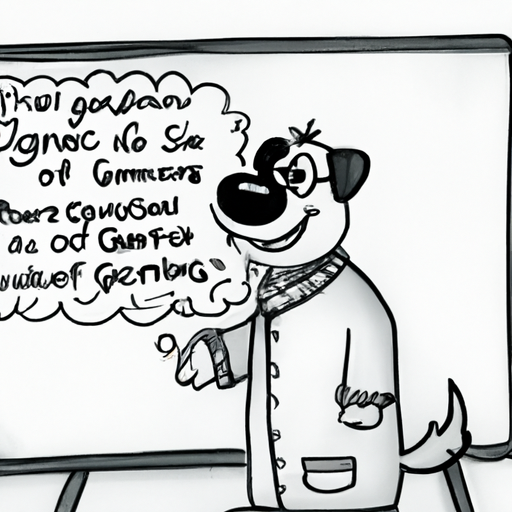Table of Contents
- Introduction
- Understanding Canine Digestion
- Dietary Factors
- Health Conditions
- Prevention and Management
- FAQs
Introduction
You’re there, enjoying a quiet moment with your furry friend when suddenly, a foul, unmistakable smell invades your space. You look at your dog, who seems unfazed or even a bit pleased with themselves. Yes, we’re talking about dog flatulence. As a caregiver, it’s not only essential to understand why your dog farts so much, but also how to manage it.
Understanding Canine Digestion
Just like humans, dogs too experience flatulence. It’s a natural part of the digestion process and indicates that your dog’s gastrointestinal tract is working. However, excessive farting could be a sign of an underlying issue.
When your dog eats, the food travels down their esophagus into their stomach where enzymes start the digestive process. The food then moves into the small intestine for nutrient absorption before ending up in the large intestine or colon. Here, bacteria break down any remaining food particles, producing gas in the process.
Dietary Factors
Diet plays a significant role in canine flatulence. Certain foods are harder for dogs to digest and lead to more gas production. These include:
- Beans
- Dairy products
- High-fat foods
- Spicy foods
Moreover, if your dog eats too quickly, they might swallow air, which eventually has to leave their body as a burp or a fart.
Health Conditions
Excessive flatulence can sometimes indicate a health issue. Some common conditions include:
- Food Allergies or Intolerances: If your dog is allergic or intolerant to certain food ingredients, it can lead to excessive gas.
- Gastrointestinal Diseases: Conditions like inflammatory bowel disease can affect your dog’s digestion, leading to more farting.
- Parasites: Parasites in your dog’s gut can disrupt the normal digestion process, leading to flatulence.
If your dog’s excessive farting is accompanied by other symptoms such as diarrhea, vomiting, or loss of appetite, consult your vet immediately.
Prevention and Management
While you can’t completely stop your dog from farting, you can take steps to reduce the frequency and intensity. Here are some strategies:
- Dietary Changes: Avoid feeding your dog foods known to cause gas. Opt for easily digestible options like lean meats and certain types of vegetables.
- Feeding Habits: Feed your dog smaller, more frequent meals and use slow-feeder bowls to prevent them from gulping air.
- Regular Exercise: Regular physical activity helps stimulate digestion and release trapped gases.
- Regular Vet Checkups: Regular vet visits can help identify and treat any potential health issues early.
FAQs
Q: How much farting is normal for a dog?
A: It varies from dog to dog, but occasional farting is perfectly normal.
Q: My dog’s farts are very smelly. Should I be concerned?
A: If it’s an occasional occurrence, it’s probably due to something they ate. If it’s a regular problem, consult your vet.
Q: Can certain dog breeds fart more than others?
A: Yes, brachycephalic breeds like Bulldogs and Boxers are more prone to farting due to their facial structure.
Q: What foods are best for a dog with excessive farting?
A: Foods that are high in protein and low in fat are generally better digested by dogs. However, each dog is unique, and it’s best to consult your vet.
Q: Can dog farts be harmful to humans?
A: While unpleasant, dog farts are not harmful to humans. They’re just a part of living with a dog!



